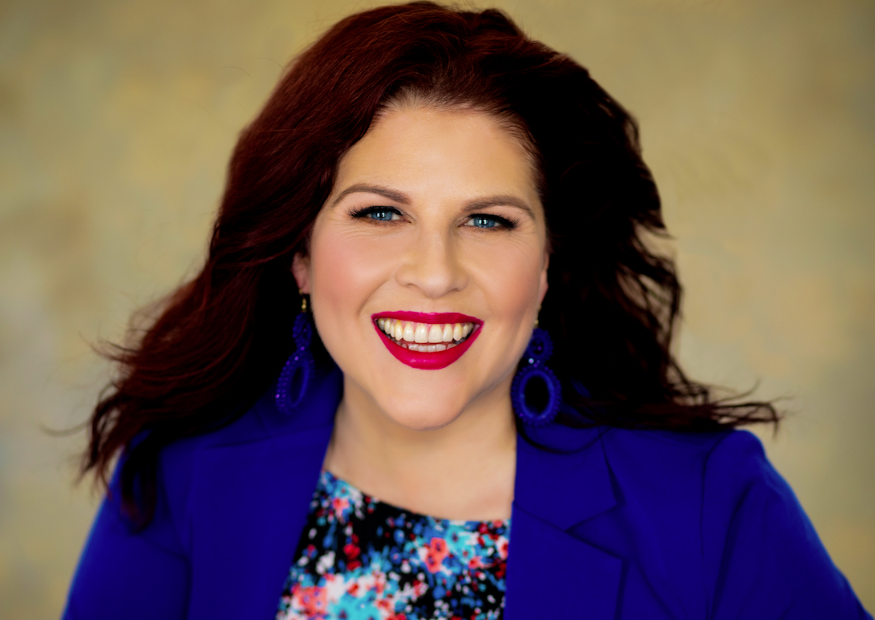
- Details
- By Native News Online Staff
Native Vote. Democrat Amanda Clinton, a citizen of the Cherokee Nation, claimed a decisive win in Tuesday’s special election for Oklahoma House District 71, becoming the fourth consecutive woman—and third consecutive Democratic woman—to represent the district.
“District 71 deserves leadership that shows up, speaks truth, and fights like hell for working people—and that’s exactly what I plan to do,” Clinton said following her victory. “I'm deeply grateful to the voters, our campaign team, volunteers, friends, family, donors, and everyone who believed in this campaign. I’m ready to get to work for the people of District 71 and for all Oklahomans.”
Clinton will be sworn in later this summer. Though the 2025 legislative session has concluded, she plans to spend the coming months meeting with constituents to prepare for the 2026 session. The seat will be up for election again in November 2026.
Her campaign drew support from a broad coalition, including Tulsa Mayor Monroe Nichols, former mayors Kathy Taylor and Rodger Randle, the Tulsa Firefighters, Planned Parenthood Great Plains Votes, labor unions, animal welfare advocates and others focused on working-class issues.
Clinton brings extensive experience in tribal governance, public service, and economic development. She previously served as a senior executive with the Cherokee Nation and Cherokee Nation Businesses for 15 years, and later founded a consulting firm dedicated to tribal and tribally owned organizations.
Raised in rural Mayes County, Clinton says her background has shaped her commitment to public service.
"My three sisters and I were raised by a contractor dad and a teacher mom—with help from grandparents who farmed and ranched. I come from a long line of hardworking Oklahomans," Clinton said. "In the richest country on earth, it’s unacceptable that families still struggle to access good schools, affordable health care, or a secure retirement. No one will work harder than I will to ensure our government serves its people."
Clinton emerged from a crowded four-way Democratic primary on April 1, winning over 51% of the vote in a record-breaking turnout.
She is now the third Native woman to represent House District 71 and remains one of just a few Tribal citizens serving in the Oklahoma Legislature.
“Women hold only about 20% of the seats in our Legislature, and even fewer are Native,” Clinton noted. “I ran to protect that representation, but also because I believe in building governments that meet people’s needs. The Cherokee Nation invested in my future—I’ve seen what’s possible when governments prioritize their people. Oklahoma needs to do the same.”
Editor's Note: This story has been updated to correct an endorsement that was made by Planned Parenthood Great Plains Votes, a political advocacy entity, rather than the orgnization's health care entity. Native News Online regrets the error.
More Stories Like This
Native News Weekly (August 25, 2024): D.C. BriefsNavajo Nation Mourns the Passing of Former Vice President Rex Lee Jim
Deb Haaland Earns Endorsement From Communications Workers of America Local 7076
University Soccer Standout Leads by Example
Two Native Americans Named to Democratic Congressional Campaign Committee's“Red to Blue” Program
Help us defend tribal sovereignty.
At Native News Online, our mission is rooted in telling the stories that strengthen sovereignty and uplift Indigenous voices — not just at year’s end, but every single day.
Because of your generosity last year, we were able to keep our reporters on the ground in tribal communities, at national gatherings and in the halls of Congress — covering the issues that matter most to Indian Country: sovereignty, culture, education, health and economic opportunity.
That support sustained us through a tough year in 2025. Now, as we look to the year ahead, we need your help right now to ensure warrior journalism remains strong — reporting that defends tribal sovereignty, amplifies Native truth, and holds power accountable.
 The stakes couldn't be higher. Your support keeps Native voices heard, Native stories told and Native sovereignty defended.
The stakes couldn't be higher. Your support keeps Native voices heard, Native stories told and Native sovereignty defended.
Stand with Warrior Journalism today.
Levi Rickert (Potawatomi), Editor & Publisher


